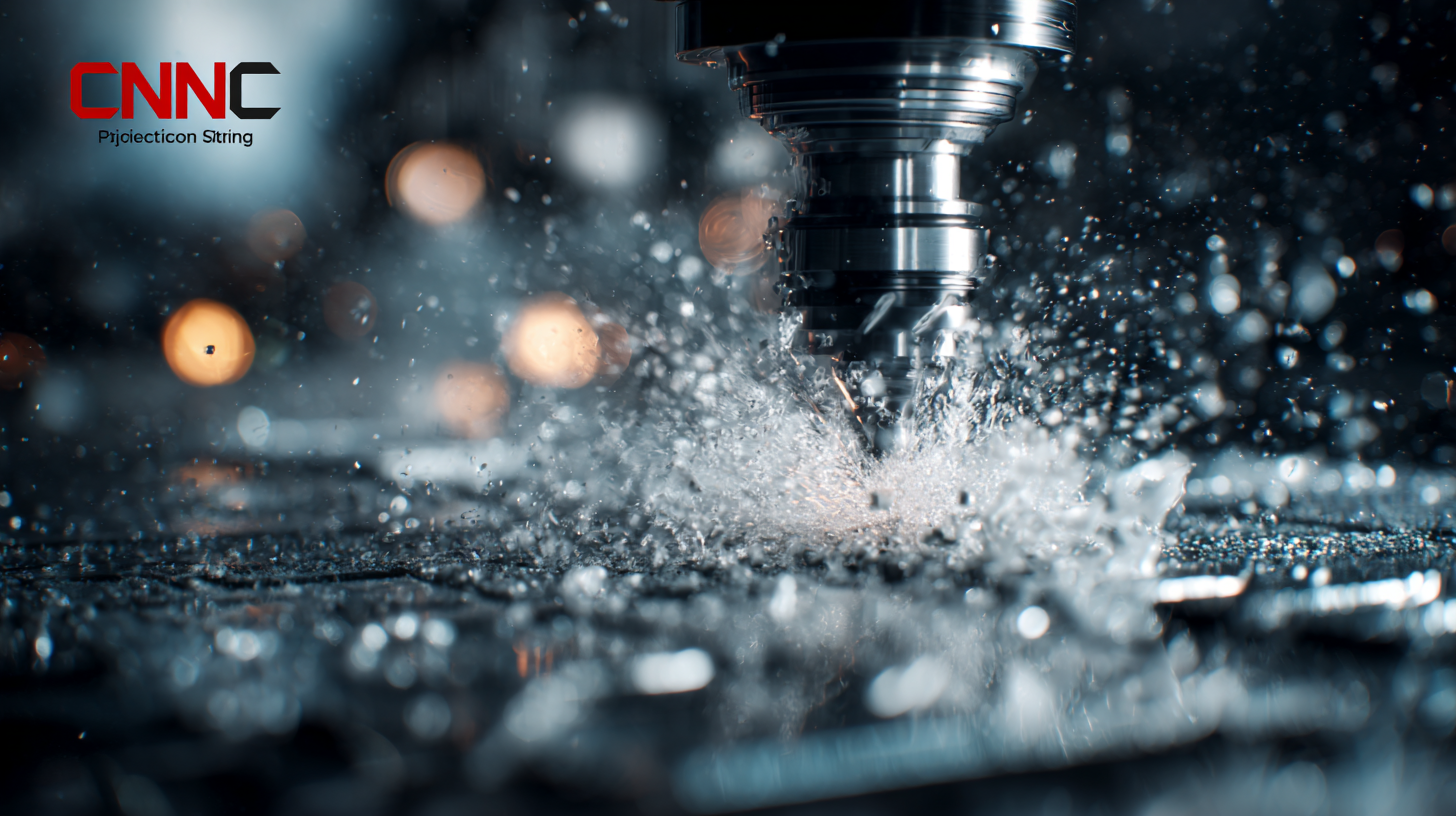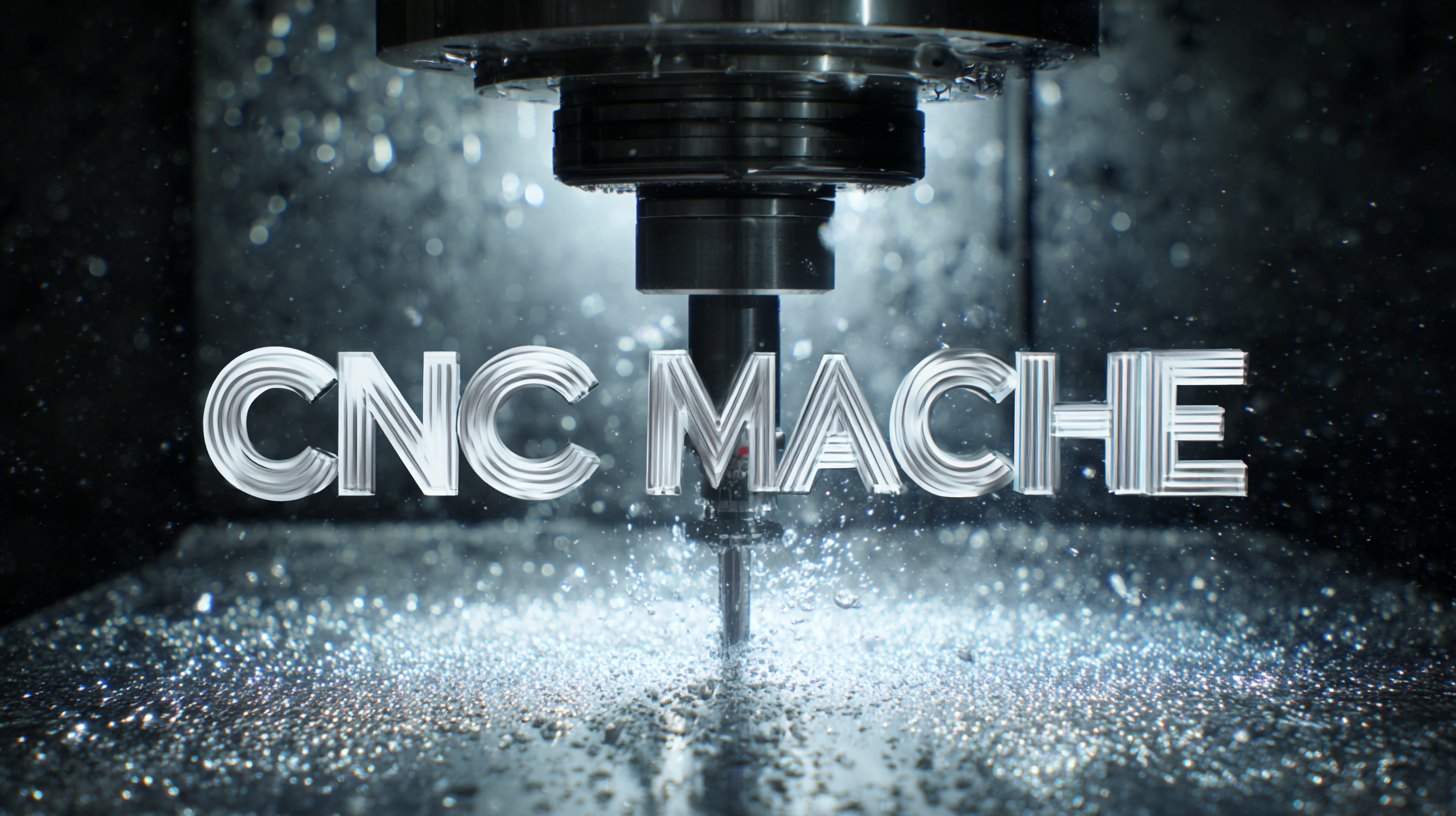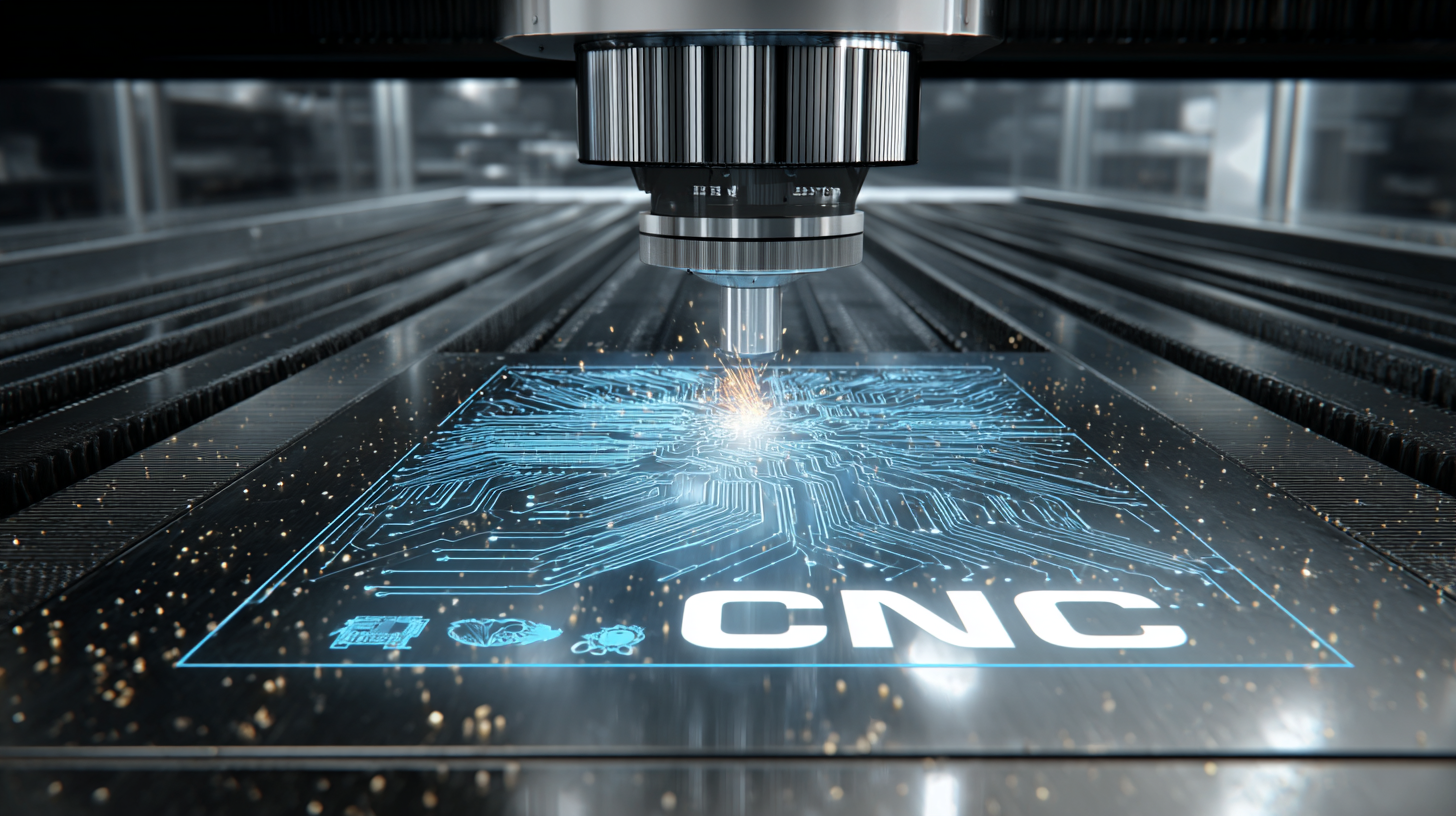Unveiling the Technical Specifications of the Best CNC Machine for Precision Engineering
In the fast-evolving realm of precision engineering, understanding the technical specifications of the best CNC machines has become paramount for industry professionals seeking to enhance productivity and accuracy. According to a recent Market Research Future report, the global CNC machinery market is projected to reach approximately $100 billion by 2026, fueled by increasing demand for automated solutions across various manufacturing sectors. CNC machines, known for their ability to perform complex tasks with high precision, are essential in creating intricate components in industries such as aerospace, automotive, and electronics. As we delve into the critical features and capabilities required from a top-tier CNC machine, it’s essential to recognize how these specifications can significantly impact operational efficiency and product quality in competitive markets.

Understanding the Key Technical Specifications of CNC Machines for Precision Engineering
When selecting a CNC machine for precision engineering, understanding the key technical specifications is crucial for ensuring optimal performance and accuracy. One of the primary specifications to consider is the machine's rigidity and stability. A rigid CNC machine minimizes vibrations during operation, allowing for finer precision in machining parts. This is often measured by the machine's construction material and overall design, making it essential to choose a machine with robust components.
Another important specification is the resolution and repeatability of the CNC machine. Resolution refers to the smallest movement a machine can make, while repeatability measures how consistently it can replicate that movement. High resolution and repeatability are vital in precision engineering, where even minute errors can result in substantial quality issues. Additionally, look for machines equipped with advanced servo motors and feedback systems, as these technologies significantly enhance performance and accuracy, ensuring components meet tight tolerances.
Finally, consider the spindle speed and power of the CNC machine, as these parameters directly affect machining efficiency and the ability to work with various materials. A high spindle speed allows for faster machining cycles, while sufficient spindle power ensures that materials can be cut effectively without compromising the quality. Balancing these specifications will lead to enhanced productivity and precision in engineering applications.

Evaluating Precision Tolerance Standards in CNC Machining: A Critical Factor for Quality
Precision tolerance standards are paramount in CNC machining, significantly impacting the quality of manufactured components. According to a report from the International Organization for Standardization (ISO), adherence to tolerances of ±0.01 mm can enhance usability and functionality across applications in fields like aerospace and automotive. This precision facilitates the creation of intricate parts that fit seamlessly within complex assemblies, highlighting why industries prioritize machines that meet or exceed these standards.

Moreover, recent studies published by the Society of Manufacturing Engineers (SME) indicate that even slight deviations in tolerance can lead to substantial increases in production costs, with estimates suggesting a potential waste of 20-30% of materials used. High-precision CNC machines, such as those equipped with advanced linear encoders and temperature-stabilized components, help mitigate these risks. By achieving tighter tolerances—often as low as ±0.005 mm—manufacturers not only ensure high-quality outputs but also reduce operational waste, driving both efficiency and profitability in competitive markets.
Assessing CNC Machine Materials and Build Quality: How They Affect Performance and Longevity
When assessing the performance and longevity of CNC machines, the importance of materials and build quality cannot be overstated. High-quality materials not only contribute to the machine's precision but also greatly enhance its durability. For example, aerospace manufacturing often utilizes advanced alloys and composite materials, which are crucial in producing parts that can withstand extreme conditions. A recent report highlights how leading manufacturers are capitalizing on these advanced materials to boost production capabilities, aligning well with the growing needs of industries utilizing CNC machines for precision engineering.
Furthermore, the build quality of a CNC machine plays an essential role in its operational efficiency. Machines constructed with robust frameworks and superior components show less wear over time, resulting in prolonged service life and reduced maintenance costs. This aligns with the findings in a recent study, indicating that as industries continue to evolve, especially in aviation and automotive sectors, the demand for machines that integrate innovative engineering materials will surge. By focusing on the right combination of materials and meticulous craftsmanship, manufacturers can ensure that their CNC machines meet the rigorous standards required for modern precision engineering applications.
The Importance of Control Systems in CNC Machines: Graphical User Interfaces and Programming Languages
In the realm of precision engineering, the role of control systems in CNC machines cannot be overstated. These systems are the brain behind every operation, significantly influencing accuracy and efficiency. Recent studies from the International Journal of Advanced Manufacturing Technology reveal that CNC machines equipped with advanced graphical user interfaces (GUIs) can enhance productivity by up to 30%. This improvement is attributed to the intuitive nature of GUIs, which enable operators to monitor and control complex machining processes with ease.
Programming languages also play a crucial role in the functionality of CNC machines. The most commonly used languages, such as G-code and M-code, provide a flexible framework for programming intricate tasks. According to a report by CNC Software, Inc., advanced programming capabilities can reduce setup times by as much as 40%, allowing engineers to implement intricate designs with precision. As the demand for customization in manufacturing continues to grow, the integration of sophisticated control systems and user-friendly programming interfaces is essential for staying competitive in the precision engineering sector.
Identifying Reliable Suppliers: Key Criteria for Sourcing High-Quality CNC Machines in the Industry
When sourcing high-quality CNC machines, selecting reliable suppliers is paramount for precision engineering success. Recent reports indicate that the machine tools market is projected to grow from USD 81.09 billion in 2025 to USD 105.11 billion by 2030, reflecting a compound annual growth rate (CAGR) of 3.8%. This growth underscores the increasing importance of innovation and quality in CNC machinery, making it essential for businesses to align with suppliers who not only meet technical specifications but also prioritize customer collaboration and support.
**Tip:** When evaluating potential suppliers, consider their track record in the industry. Look for partners who demonstrate a commitment to advanced manufacturing practices and have a portfolio that showcases their ability to adapt to changing technologies, especially as sectors like semiconductor equipment manufacturing experience rapid transformation.
In addition to technical capabilities, assess the suppliers’ flexibility and responsiveness. The recent reevaluation in medical device manufacturing highlights the necessity for true partnerships that foster mutual success. Suppliers who are willing to engage in transparent communication and adapt to specific project needs will ultimately enhance your operational efficiency and product quality.
**Tip:** Engage potential suppliers in discussions about their sourcing and supply chain strategies. Understanding how they manage logistics and keep pace with industry trends can help ensure a reliable flow of high-quality CNC machines for your precision engineering projects.















